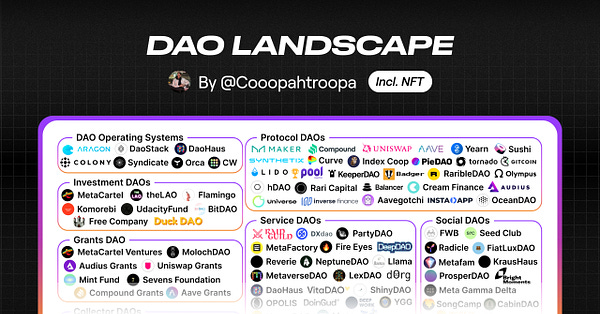Monday AM Briefing #66
Need* to know stories and trends for this morning & the week ahead; A Short Essay On English Premier League Rights Renewal, Formula One & Comcast’s Odds
[Author’s Note: Thank you to those who responded to the survey. The top two results were, in order: (1) Reframing Your Perspective and (2) Revealing What’s Hidden.
There were some good user submissions, too. My favorite was from reader Michael Boamah with “Behind The Why”.
One reader didn’t like any of the slogans because they read too safe: “you blow up our misconceptions”.
“Behind The Why” feels a bit more directionally accurate. In the meantime, I’ll be going diving deeper into the Merriam Webster thesaurus rabbit-hole.
So let’s raise the stakes: if you send me a two-to-three word slogan based on the parameters above, and it’s the right one, I’ll give you a free, one-year comp to Member Mailings (~$499 value).
Simply reply to this email. Thank you in advance!]
A Short Essay On English Premier League Rights Renewal, Formula One & Comcast’s Odds
In last Friday’s Mic Drop I wrote about DAZN and niche sports and concluded that:
distribution of niche sports have little value in streaming and broadcast without PARQOR Hypothesis-type ecosystems to hyper-serve those passionate fans, and then drive them to streaming.
On the other side of the spectrum is the English Premier League (EPL), whose current deal with Comcast expires at the end of the 2021-2022 season.
This week EPL clubs are expected to meet and Bloomberg’s Lucas Shaw reported that they “are expected to seek bids instead of preemptively renewing with Comcast”:
Though the EPL is pleased with the coverage by Comcast’s NBC, which has been praised by soccer fans, the league sees an opportunity to double or triple the value of the rights deal by testing the market.
Comcast paid $150 million a year under the previous deal, and expects it will cost more than $300 million a year for a renewal, said the person, who asked not to be identified discussing an internal matter. That would bring the total value of the deal to at least $2 billion.
The meeting also takes place under unfortunate circumstances for Comcast, as last weekend:
Users of Peacock TV, one of the only places in the US where fans can watch Premier League soccer matches, reported widespread disruptions trying to stream games live on the service on Saturday.
Meadowlark Media reporter Grant Wahl offered this withering take on Peacock’s technical failure:

There are no guarantees for Comcast to secure the renewal deal, and as Shaw reports:
The bidding is expected to be fierce, with several of the world’s largest media companies seeking programming to boost their incipient streaming services. ESPN, WarnerMedia, and ViacomCBS Inc. are all expected to bid on the rights, and would offer to put some games on linear TV and others on their streaming services.
Peacock streams more than 175 matches live this season, and it has full replays of all 380 matches. Replays of all the matches that stream live on Peacock will be available shortly after the livestream ends, and replays of other matches are available on Peacock 24 hours after they end.
But, the reasonable and fair implication from Wahl’s tweet is that EPL fans are being under-served by Peacock’s unreliable streaming technology.
That said, the WWE is building a good story with its fans on Peacock, as per CEO Nick Khan in the Q2 earnings call:
Since moving to Peacock, viewership of our pay-per-view events have increased with Backlash up 26%, Hell In A Cell up 25%, and Money In The Bank up 46% from the prior year performance on what was the stand-alone WWE Network. These viewership numbers are also up considerably from our pre-pandemic WWE Network numbers. As you recall, when we announced the Peacock deal, we said one of the key reasons for the partnership was to bring the WWE product to a wider audience than those subscribed to WWE Network. We expect viewership of WWE to continue to increase, particularly as Peacock rose its base of users.
This all said, the success of the Formula One model — which has seen average viewers per race on ESPN rise to about 928,000 so far in 2021 from about 547,000 in 2018 — has shaken up what success means in sports broadcasting.
As I wrote on Friday:
there are three separate, individual, and clearly-defined channels for consuming F1 in America:
Race tracks (events),
ESPN (linear), and
Netflix (streaming behind-the-scenes content)
All available evidence suggests the online elements of the business added by Liberty Media post-acquisition in 2017 (Netflix, in particular, but also esports) have had an on-line-to-off-line “flywheel effect” on ticket sales to events, and tune-in to broadcasts, and are driving growth.
The EPL’s model only hits the second channel, under which streaming allows for more audiences to view their favorite team. There is no “flywheel effect” (NOTE: the WWE has all three).
Formula One’s success in the U.S. highlights how, without live events or a behind-the-scenes Netflix show, the burden of marketing the EPL in the U.S. is carried by the distribution partner.


Growth will be a necessary condition for any deal with EPL, both because growth will be a necessary condition for ad sales and sponsorships and because without growth, a $2B deal becomes costly to the EPL brand in the U.S.
Peacock and Paramount+ have obvious marketing pain points. But, ESPN offers both linear and streaming (it’s succeeding with Formula One, ESPN+ is growing, and “seems to be the only sports streaming service that understands the consumer”), and Amazon is becoming a market force in both sports and advertising.
Through the lens of Formula One’s model, ESPN, Amazon and perhaps WarnerMedia solve for EPL’s pain points in ways that Comcast does not.
Comcast may lose the EPL.
Must-Read Monday AM Articles
Emerging "Metaverse"-type convergence strategies
Dean Takahashi has a good, deep-dive breakdown of the impact of Epic v. Apple on the gaming industry. The Washington Post also has a good post.
An argument that “‘Metaverse’ is a fairly useless distinction mostly helpful to signal uninformed investors, corporate types, media folks and other hangers-on.”
A short history of Apple CEO Tim Cook’s bullishness on Augmented Reality.
Three key App Store policy topics and the thoughts of Gene Munster’s Loup Funds on how they play out in the years to come.
Aggregator 2.0
RIAA’s mid-year 2021 recorded revenue statistics show streaming makes up “84% of US Recorded Music revenue in 2021 H1, which is ~flat from last year in terms of share, but has grown by 26% to almost $6B.”
Spotify launched six new shows on Spotify Greenroom focused on pop culture and music, in addition to what Spotify calls “playlist-inspired shows” — meaning those that are inspired by Spotify’s own playlists.
Creative Talent & Transparency in Streaming
Two of the top litigators in profit participation cases wrote about the five biggest misconceptions of the practice and the Scarlett Johansson lawsuit.
A deep-dive from the Philadelphia Inquirer into the market dynamics of streaming services adding more sports content.
Vogue reported nearly 15 million viewers for the 2021 Met Gala watched the exclusive red carpet live stream hosted by guests Keke Palmer and Ilana Glazer for Vogue.com and the magazine’s Twitter account.
Original Content & “Genre Wars”
The Entertainment Strategy Guy dove into the data on the performance of Manifest on NBC (its original home) vs. on Netflix (its new home). Variety reported why Netflix “really saved Manifest”
Netflix Animation has more animation projects in the pipeline.
Cops will get a new turn as a show on Fox Nation, the streaming-video service backed by Fox News Media.
Comcast’s & ViacomCBS’s Struggles in Streaming
Observer’s Brandon Katz asks “Paramount May Retreat From Theatrical to Focus on Streaming—Why?”
Insiders expect Paramount to start churning out low-cost, often mediocre features for streamer Paramount+.
Bill Shea of The Athletic asks, “How do we fix the chaotic mess of cable, broadcast and streaming sports TV?” ($ - paywalled)
AVOD & Connected TV Marketplace
Variety’s Brian Steinberg reported, “Big media-buying agencies and even a few advertisers are likely to help as the TV industry battles with Nielsen and continues to push for alternate systems of counting video viewers, whether they watch via traditional linear TV or a new streaming-video hub.”
YouTube’s chief business officer Robert Kyncl told the Royal Television Society Cambridge Convention that the company is larger — and growing faster — than Netflix in terms of revenues.
YouTube TV has more Spanish-language content,
I missed this CNBC interview with Fubo TVCEO David Gandler thinks 5 million people could subscribe to its bundle of TV networks by 2026.
In an interview during Bank of America's Media, Communications & Entertainment Conference on Monday, Discovery CFO Gunnar Wiedenfels predicted competing streaming services that offer both ad-supported and ad-free tiers were "experiencing similar metrics of performance.”
Other
Decider’s Scott Porch interviewed Turner Classic Movies’ leadership about its recent rebrand.
A must-read interview with Netflix’s head of scripted series in the U.S. and Canada Peter Friedlander, and another must-read interview from Deadline with Netflix’s two top content executives in Spain.
The Wall Street Journal’s Dan Gallagher wrote about how Wall Street is betting on a turnaround for Netflix in H2 2021.
Netflix seems immune to churn, according to Wurl, but not so much everyone else
Last, a good basic overview of decentralized autonomous organizations (DAOs):





